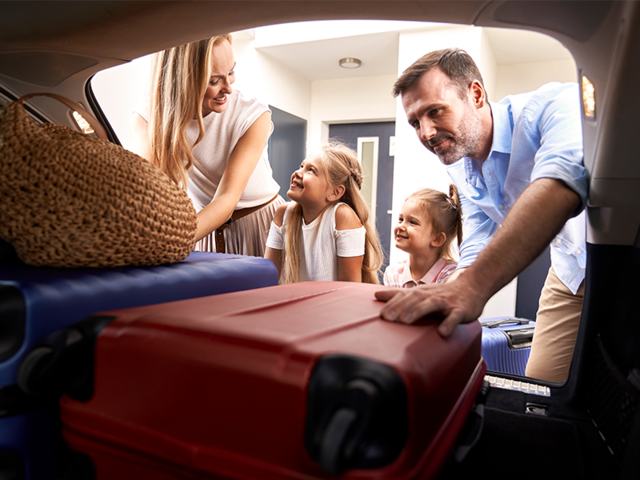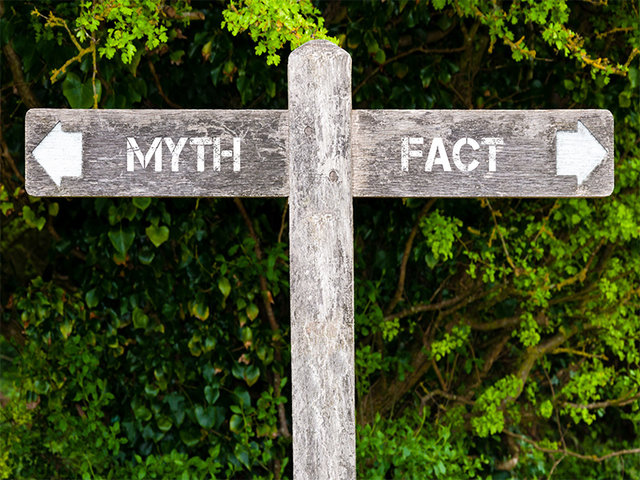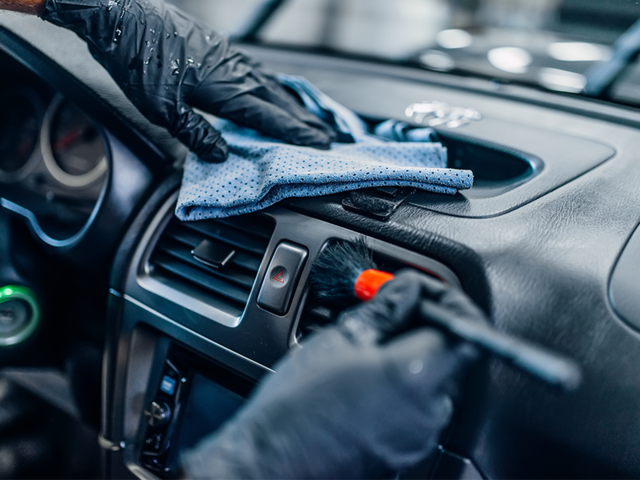Credit can be hard to understand, after all we don’t learn about in school. This confusion is often made worse by common misconceptions you hear from well meaning friends and family. VIDrives is a dedicated team of credit, financing and vehicle specialists that are here to help you understand, navigate and improve your credit– Read on for our guide to the top 6 Credit Myths. Myth #1: Checking...

With road trip season officially underway, it’s time to get ready to hit the open road and go wherever the pavement may take us. While road trips are often carefully planned, it’s easy to get a few kilometers down the road and realize “shoot, I forgot to pack _____.” So, to keep unplanned stops and complications to a minimum- there are a few things you should bring to ensure the trip goes smoothly.
Below, we’ll list and explain some of the road trip essentials you’ll want to pack before heading out on your trip.
For more road trip tips- check out our other posts!
1. 12-Volt Phone Charger
If you drive a newer vehicle, chances are it will come with at least one USB port to charge your phone and connect it to your vehicle. But it never hurts to have a few 12-volt chargers- bonus points if they come with multiple USB ports.
This helps you make sure that you have enough ports to keep every device charged- and cut’s down on road trip arguments with your passengers. If there’s enough charging ports to go around, and to charge everyone’s entertainment devices- that can cut tensions down and avoid “what’s your phone at?” exchanges.
While you’re at it- make sure to bring plenty of charging cables too- micro USB, USB and Lightning being the most common.
2. First Aid Kit
You should always have a first aid kit in your car, but especially for road trips. There’s no need to go crazy on a top of the line kit- but a simple kit with some basics like bandages, gauze antiseptics and some over the counter medicine for motion sickness and headaches etc. will do the trick.
This will make sure that any basic ailments can be quickly cared for if necessary. Many people keep their kits in the trunk- but it might be best to keep it in the main cabin for easy access for you and your passengers.
3. Insulated Water Bottle
Everyone get’s thirsty, and there’s nothing worse than having to stop at a gas station or a drive through every time it happens- especially when you factor in the bathroom breaks this adds.
When you bring an insulated water bottle, you’ll be saving time and money by bringing your water from home, avoiding leaks, and making sure that your water stays cool and refreshing on hot days.
4. Hand Sanitizer
While good planning can cut down on stops, you’re still gonna have to make stops in unfamiliar places with unfamiliar germs. It’s important to keep your hand cleans when you interact with objects many others touch, like fuel pumps or door handles- especially if you’re road tripping with others.
Using your own stock of hand sanitizer can help keep you and your passengers from getting travel bugs that dampen your road trip.
5. Sunscreen
The imfamous “Drivers tan” is a very real thing- and Canadian summers get hot. Bring along some sunscreen and apply it regularly to avoid an uncomfortable drive with a painful sunburn.
6. Jumper Cables or Booster Pack
A dead car battery can throw a wrench into any road trip- so make sure to prepare.
Jumper cables are an excellent choice because they don’t take up too much of your valuable trunk space, but you’ll have to wait for a good samaritan with a second vehicle to get going again. If you have a little extra space- get a booster pack (a battery-powered unit that can jump-start a car all on it’s own) and make sure you charge it to full capacity before taking off on your adventure.
7. Toiletries
This seems like a no brainer, but it’s an easy one to forget. If you’re trip will last more than a day- pack your toothbrush, toothpaste, hair brush, deodorant, hair products, soap, shampoo, conditioner and any other grooming necessities. Additionally, bring a roll of toilet paper or baby wipes in case nature calls at an inopportune time on the road.
8. Travel Mug
Okay, this one might not be essential- but it’s helpful to keep an insulated travel mug for road trips. Fast food coffee cups won’t keep your beverages hot, can start to leak, and spill easily. When you get your road trip cup-o-joe simply transfer it into your travel mug, then throw away the paper cup.
9. Rain Jacket or Poncho
It's hard to predict when rain will strike on a Canadian road trip, and it may not be convenient to hold an umbrella, such as if you’re building a tent or a fire. A poncho or rain jacket will keep you dry like an umbrella, but you’ll have two free hands to get the job done.
10. Sleeping Bag
Even if you’re not camping- a sleeping bag with a low temperature is a great addition when you’re packing your car. Just in case you break down in the cold, or you can’t find a hotel and get stuck sleeping in the car.
11. Maps
Many newer vehicles are equipped with Apple CarPlay and Android Auto, which have built-in GPS systems like apple maps or google maps. However, not every car has this, so you can either get a windshield mount for your cellphone and use Google Maps or Apple Maps straight from the phone or purchase a standalone GPS unit and use this instead.
Additionally, keeping a paper map in case of dead zones, broken phones or other unforeseen circumstances can be a good idea as well.
12. Portable Charger
Even with charging ports and extra chords, it’s good to have a portable charger as well. What happens if the car dies? You can no longer charge your phone at this point, so having a portable charger that you can plug your phone into will come in handy.
13. Garbage Bags
When you’re stopping for snacks and drinks, they usually come with wrappers, bottles, and other garbage. Instead of jamming them in every available cupholder, glove box, and door pocket- bring along some grocery bags to store it in which will make it easier to throw it out at your next stop.
14. Roadside Emergency Kit
If you break down or run out of fuel, a roadside emergency kit can help. These generally include safety items, like flares or warning triangles, which you can place behind your vehicle to warn other drivers your car is stopped. They may also include a small tool kit to perform light repairs, tire sealant, and other items that can come in handy in a pinch.
You can assemble an emergency kit on your own, or get one pre-made from companies like our friends at Get My Kit- who make excellent, affordable options for emergency kits.
Add a Quality Pre-Owned Car From VIDrives to Your Road Trip Essentials List
While putting together your road trip checklist, you may want to include a quality pre-owned vehicle to ensure your trip is smooth and enjoyable. You can pick up this quality pre-owned vehicle from VIDrives.
Not only can you skip the dealership and buy your vehicle online, but you get the added peace of mind that every pre-owned vehicle we sell goes through a comprehensive inspection and reconditioning process.
Other Articles That May Interest You
Here on the Island, we’re lucky enough to (usually) have our winter delayed until around late November, still it’s better to be prepared for the cold weather before you’re caught in a snowstorm. Here are some easy steps that you can take to take care of your vehicle, so it can take care of you this winter. Step 1: Seasonal Maintenance Check Up Vehicle Maintenance isn’t seasonal, but as the...
Getting your car professionally detailed gets pricey fast, but frequent cleaning is an important habit to keep your vehicle in good condition- That’s why many drivers opt for an affordable DIY Detail. Here are some tips, product recommendations and advice to save you some time and money when you’re detailing your car. Find a comfortable workstation Even with the best tools and strategy,...





